Sinus Infection While Breastfeeding: How to Treat and Manage It?

- What Is a Sinus Infection?
- Causes of a Sinus Infection in Breastfeeding Mothers
- Signs and Symptoms of a Sinus Infection
- How to Treat Sinus Infections in Nursing Moms?
- Precautions to Take When Breastfeeding With Sinus Infection
- Tips to Manage Sinus Infection at Home
- When to Consult a Doctor?
- FAQs
A woman’s body is in the recovery phase post-delivery. During this time, her immune system is weak and susceptible to all kinds of infections. One of the most common types of infections that can affect women during this phase of their lives is a sinus infection. Although sinusitis is treatable to a great extent, it becomes all the more troublesome when a woman gets the infection while she is breastfeeding. In this article, we shall speak about what a sinus infection is, its causes, symptoms, treatment, and tips to deal with a sinus infection while breastfeeding.
What Is a Sinus Infection?
According to the American College of Allergy, Asthma & Immunology, inflammation of the tissue that lines the sinus cavities is called a sinus infection (1). It can be caused due to viral, fungal, or bacterial infection and is also known as sinusitis. A sinus infection is commonly characterised by a runny nose, sneezing, coughing, cold, inflamed nasal cavities, headaches, fever, and a sore throat. New mothers are susceptible to getting a bacterial infection which could lead to a build-up of fluid and mucus inside the sinus cavity. The mucus then creates an environment for bad bacteria to breed, which causes the infection. Under normal circumstances, a sinus infection can be treated with a course of oral medication that includes antibiotics and antihistamines. It could, however, pose a concern for breastfeeding mothers who cannot take medication. In that case, we recommend consulting your doctor for advice.
Causes of a Sinus Infection in Breastfeeding Mothers
Several reasons could cause a sinus infection in breastfeeding mothers. Some of them are given below (2):
- A sudden change in weather
- Allergies
- Common cold
- Bacteria transmitted through the air
- The influenza virus
- Nasal polyps
- Predisposing factors like deviated nasal septum.
Signs and Symptoms of a Sinus Infection
Identifying a sinus infection can be quite easy as most of the symptoms are fairly visible. According to Penn Medicine, here are a few symptoms to help you identify a sinus infection (3):
- Headaches
- A runny nose
- A sore throat
- Tooth pain
- Acute pain all over the face, particularly the upper nose, cheeks, and eyes
- Bad breath
- Blocked nose
- Fever
- Cough
- Post-nasal discharge
How to Treat Sinus Infections in Nursing Moms?
As mentioned earlier, a sinus infection can be treated with oral medication; however, you must consult your doctor first to find out if taking oral medication while breastfeeding is safe for your baby or not. Here is a list of sinus infection treatment while breastfeeding options the doctor could consider for nursing mothers:
1. Antibiotics
The most common method of treatment for a sinus infection is antibiotics, but, some antibiotics can have severe side effects on your baby if you are breastfeeding. Thus, it is important to discuss the medicines with a trusted doctor. If your doctor does prescribe you some medication, it is recommended that you complete the course, or else the infection will mutate and become resistant to the medication.
2. Antihistamines
Antihistamines have a number of side effects, some of which are drowsiness and dizziness. Having said that, there are some antihistamines that do not have this side effect. You must consult your doctor and get them prescribed if there is a dire need for antihistamines to cure your sinus infection.
3. Decongestants
According to the American Academy of Allergy, Asthma & Immunology, one of the most effective ways to relieve inflammation and fluid build-up during a sinus infection is to use a decongestant (4). It is once again recommended that you check with your doctor and purchase prescribed decongestants only because some over-the-counter medications can cause lactation problems.
4. Taking Rest
The most effective treatment for a sinus infection is rest as the infection tends to dissipate on its own in a few days. We recommend that you take plenty of rest and don’t exert yourself, especially when you are breastfeeding. Ask your partner or the caregiver to look after your child when you feel tired and take mid-day naps.

5. Painkillers
Sinus infections generally cause discomfort, but sometimes, they can be very painful. For such severe cases, doctors also prescribe painkillers. Once again, get in touch with your doctor and seek alternative methods to treat a sinus infection.
6. Increase Fluid Intake
A sinus infection is known to dehydrate you heavily, so make sure you drink enough fluids. Apart from drinking lots and lots of water, try to drink some orange juice also as it can help you fight infections and reduce inflammation. Some teas, especially green tea, hot soups, or just warm water, can also provide relief from a sore throat. Avoid having milk as it leads to a build-up of mucus in the sinus cavity. You may also contact your doctor to understand which fluids can help you manage or get rid of the infection.
Precautions to Take When Breastfeeding With Sinus Infection
When breastfeeding with a sinus infection, it’s essential to take certain precautions to ensure both the mother’s and baby’s well-being. Sinus infections can make breastfeeding uncomfortable due to congestion and potential medication use. However, with proper care, breastfeeding can still continue safely. Here are some precautions to consider:
- Before taking any medication, consult with a healthcare provider, preferably one knowledgeable about lactation, to ensure the safety of both mother and baby.
- Saline nasal sprays or rinses can help alleviate congestion without any harmful effects on breastfeeding.
- Drinking plenty of fluids helps maintain hydration levels and can thin mucus, making it easier to clear congestion.
- Wash hands frequently to prevent the spread of germs to the baby and consider wearing a mask while breastfeeding if the infection is contagious.
- Keep an eye on the baby for any signs of illness or changes in feeding patterns. If any concerns arise, seek medical advice promptly.
Tips to Manage Sinus Infection at Home
Here are a few tips to help you manage a sinus infection while you are breastfeeding. These natural remedies for sinus infection while breastfeeding will provide immense relief:
- Drink plenty of warm or room-temperature liquids throughout the day.
- Take as much rest as possible.
- Inhale steam to open up the nasal cavities when your nose is blocked.
- Never take any medicines without your doctor’s approval. This includes general medication and over-the-counter medication too.
- Try to keep some distance from the baby while you have a sinus infection. You may limit coming close to him only for breastfeeding. This is because sinus infections can be contagious, and you might end up transmitting it to your baby.
- Follow your doctors’ instructions to the T.
- Eat, even if you don’t have an appetite, as you need to keep your energy levels high.
- Adding moisture to the air can help ease congestion and soothe irritated nasal passages. Running a humidifier in your room, especially at night, can provide relief.
- Prop yourself up with extra pillows to promote better drainage of mucus and reduce congestion while sleeping.
- Placing a warm compress over your sinuses can help alleviate pain and pressure. Simply soak a clean washcloth in warm water and apply it to your face for a few minutes at a time.
When to Consult a Doctor?
For acute sinusitis, there is no need to consult a doctor as it is very common and goes away in a few days. Most times, simple home remedies like inhaling steam, drinking orange juice, green tea, etc. work wonders. But, if you are a new mother, your immune system is still weak, and your body is recovering from the delivery phase. Your baby’s immune system will also be weak; hence, it is recommended that you consult a doctor if you observe any symptoms of a sinus infection or are already suffering from sinusitis to get further sinus treatment.
FAQs
1. Can a sinus infection affect breastfeeding or breast milk supply?
While a sinus infection itself typically doesn’t affect breastfeeding or breast milk supply, it may make breastfeeding uncomfortable due to congestion or other symptoms. Ensuring proper hydration, rest, and managing symptoms can help maintain breastfeeding.
2. Should I avoid close contact with my baby if I have a sinus infection?
While it’s not necessary to avoid close contact with your baby altogether, you may consider limiting close contact, especially if your sinus infection is contagious. Practising good hygiene, such as washing hands frequently and wearing a mask while breastfeeding, can help reduce the risk of transmitting the infection to your baby.
3. Can breastfeeding help clear a sinus infection?
Breastfeeding itself may not directly clear a sinus infection, but staying hydrated and maintaining breastfeeding can support your overall health, which may aid in recovery. Additionally, breast milk contains antibodies that can help boost your baby’s immune system.
4. Can I use essential oils to alleviate sinus infection symptoms while breastfeeding?
Using essential oils for sinus infection symptoms should be approached with caution, especially while breastfeeding. Some essential oils may be safe for limited use during breastfeeding, while others can be harmful to the baby or may reduce milk supply. It’s crucial to consult with a healthcare provider or a qualified aromatherapist who is knowledgeable about essential oil safety during breastfeeding. Additionally, always dilute essential oils properly and use them sparingly. If any adverse reactions occur in the mother or baby, discontinue use immediately and seek medical advice.
This was all about sinus infection while nursing. A sinus infection is one of the most common types of infections that affect women post-pregnancy. When you are breastfeeding, it becomes imperative that you treat it immediately to prevent it from getting transmitted to your baby. It is thus best to consult your doctor, follow his instructions, take rest, eat well, and drink plenty of fluids to bounce back in no time.
References/Resources:
1. Sinus Infection; American College of Allergy, Asthma & Immunology; https://acaai.org/allergies/allergic-conditions/sinus-infection/
2. Sinusitis; Better Health Channel; https://www.betterhealth.vic.gov.au/health/conditionsandtreatments/sinusitis
3. Sinus Infections (Sinusitis); Penn Medicine; https://www.pennmedicine.org/for-patients-and-visitors/patient-information/conditions-treated-a-to-z/sinus-infections-sinusitis
4. Sinusitis; American Academy of Allergy, Asthma & Immunology; https://www.aaaai.org/conditions-treatments/allergies/sinusitis
5. Sinus Infection (Sinusitis); Centers for Disease Control and Prevention; https://www.cdc.gov/antibiotic-use/sinus-infection.html
6. How to Tell If Your Cold is Actually a Sinus Infection; Cleveland Clinic; https://health.clevelandclinic.org/cold-really-sinus-infection-tell/
7. Is Rinsing Your Sinuses With Neti Pots Safe?; U.S. Food & Drug Administration; https://www.fda.gov/consumers/consumer-updates/rinsing-your-sinuses-neti-pots-safe
Also Read:
Hives while Breastfeeding
Hepatitis and Breastfeeding
Back Pain when Breastfeeding
Is It Safe to Take Cold Medicine while Breastfeeding?
Was This Article Helpful?
Parenting is a huge responsibility, for you as a caregiver, but also for us as a parenting content platform. We understand that and take our responsibility of creating credible content seriously. FirstCry Parenting articles are written and published only after extensive research using factually sound references to deliver quality content that is accurate, validated by experts, and completely reliable. To understand how we go about creating content that is credible, read our editorial policy here.








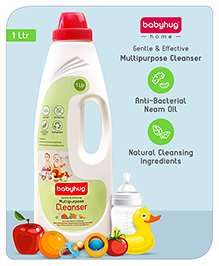
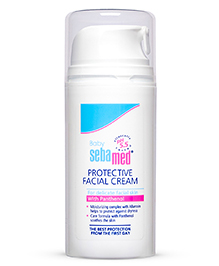
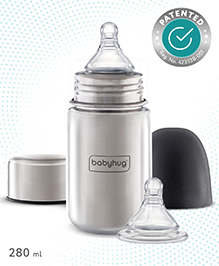

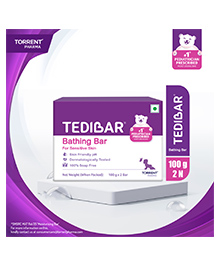
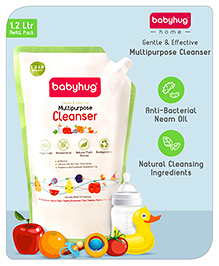

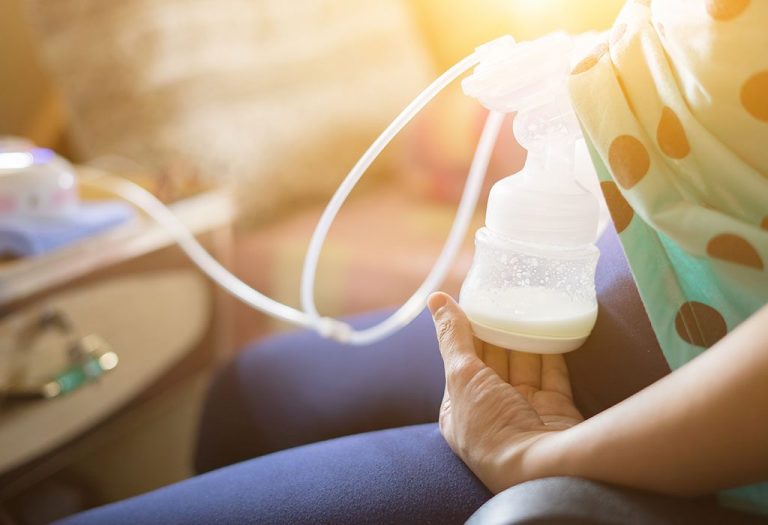



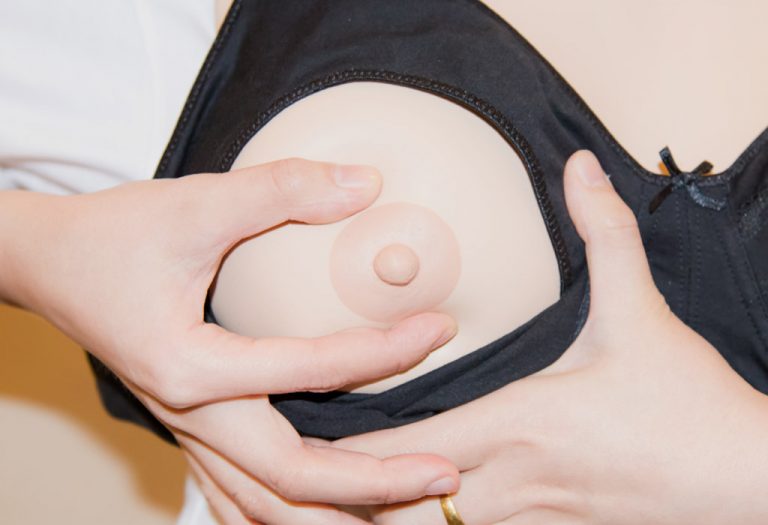

.svg)


















